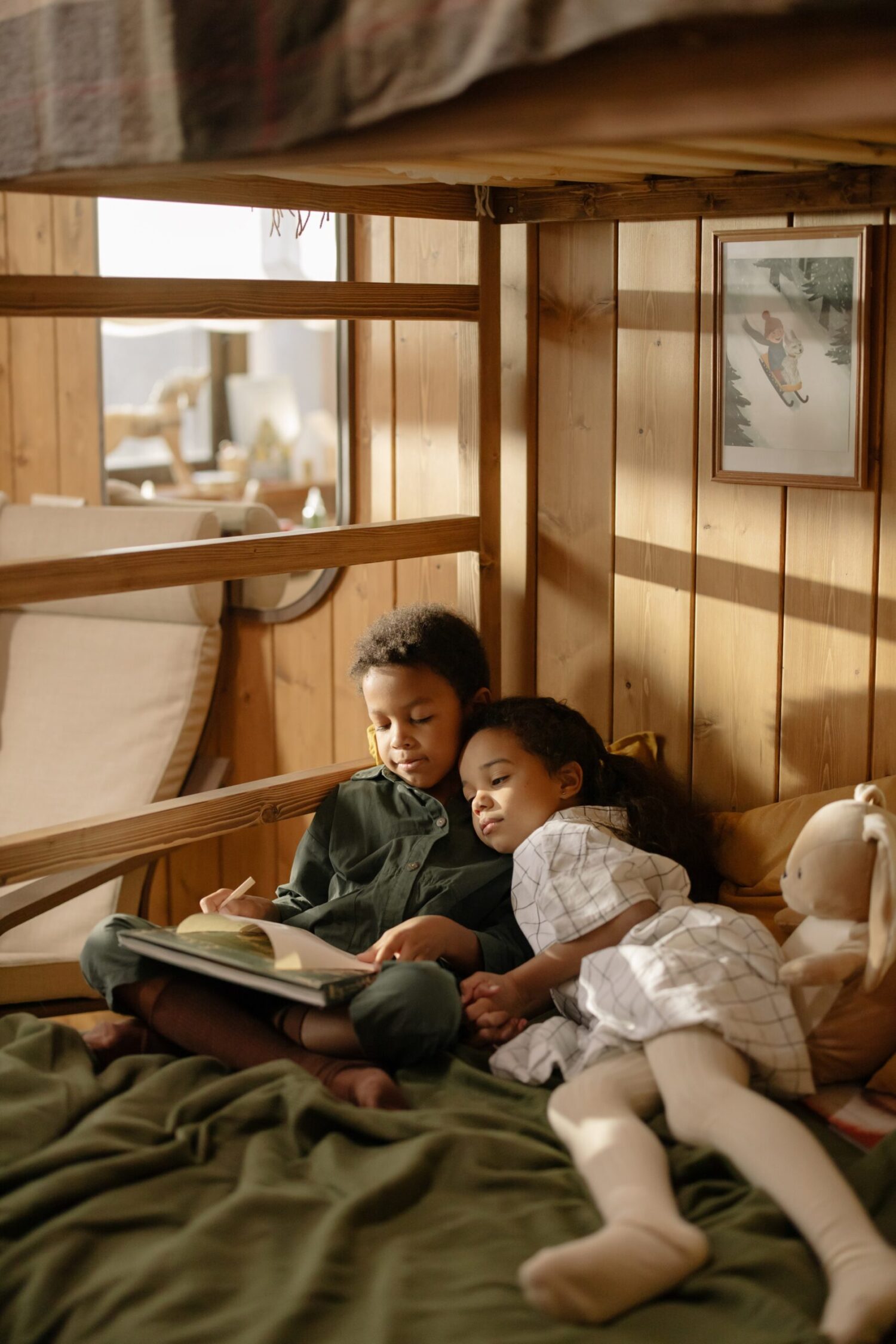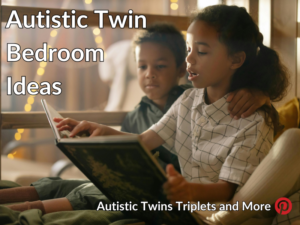Just one or all of your children may be autistic, but how do you decide if your twins should share a bedroom or not? It’s a choice that can shape their daily lives and your family dynamics in many ways.
The joys of sharing
First, let’s talk about the positives. Sharing a bedroom can create a special bond between siblings. Imagine them whispering at bedtime, or giggling under the covers. Often times, twins, triplets or quadruplets do not want to be separated – they’ve been together since day one! Sharing a room can make them feel safe and secure, especially at night when the world feels a bit bigger and scarier. They might find comfort in being together.
Sharing a room is also good in a practical sense – sometimes you just don’t have any other choice! If your home has limited space, having your twins share a room can free up other areas for play or therapy. It can maximize your living space, making room for other activities or quiet zones.
Some challenges
Of course, sharing a room isn’t always easy. Autistic twins often have unique sensory needs and preferences, and what works for one might not work for the other. One child might be sensitive to noise while the other loves to hum or talk themselves to sleep. These differences can lead to sensory overload or sleep disturbances, which can be hard on everyone.
Sleep is another critical factor. If one twin is a light sleeper or has difficulty staying asleep, it could disrupt the other’s rest, leading to tired and cranky mornings. And let’s not forget the need for personal space. Everyone, including children, needs a little privacy and a place to unwind. Sharing a room can sometimes make it hard for your twins or triplets to find that personal bubble.
Finding a balance
If you decide to go ahead with a shared bedroom, there are ways to make it work smoothly. Creating defined spaces within the room can help. Maybe each child has their own bed nook, complete with their favorite toys and decorations, giving them a sense of ownership and personal space within a shared environment.
Tailoring the sensory environment is crucial too. Think about noise machines, individual reading lights, or blackout curtains to cater to each child’s needs. Small adjustments can make a big difference in creating a space that works for everyone.
Establishing routines is big help – having clear and consistent rules about bedtime, playtime, and personal space can help reduce conflicts and anxiety. A predictable routine can make sharing a room more manageable and pleasant for your autistic triplets.
Ultimately, the decision comes down to what feels right for your family. Pay attention to how your children react respond to sharing a room. Be prepared to adapt and make changes as needed. Remember, flexibility is key—what works today might need to be adjusted tomorrow as your children grow and their needs change. Whether they end up sharing a room or not, the goal is to create a living arrangement that supports their well-being and happiness. You know your kids best!
Do your children share a bedroom? Share your ideas and stories below. Be sure to subscribe for the latest news and updates!
This website uses affiliate links. We may make a small commission from purchases when you use these links, at no additional cost to you. As an Amazon Associate we earn from qualifying purchases.





